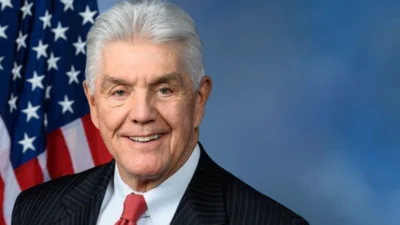House Committee on Oversight and Accountability Chairman James Comer (R-Ky.) opened today’s markup by urging the committee to pass legislation to protect Americans’ speech from government censorship. At the markup, the Oversight Committee will consider the Protecting Speech from Government Interference Act (H.R. 140), the Accountability for Government Censorship Act (H.R. 1162), and the panel’s authorization and oversight plan.
Below are Chairman Comer’s opening remarks as prepared for delivery.
During our February 8th hearing on “Protecting Speech from Government Interference and Social Media Bias,” the Oversight Committee learned just how easy it was for the federal government to influence a private company to accomplish what it constitutionally cannot: limit the free exercise of speech.
At the hearing, we heard hours of witness testimony that revealed the extent to which federal employees have repeatedly and consistently communicated with social media platforms to censor and suppress the lawful speech of Americans.
The hearing exposed just how much the Biden Administration have attempted to normalize a policy of federal censorship.
Biden Administration officials have publicly called upon—and privately coordinated with—private sector social media companies to ban specific accounts viewed as politically inconvenient.
During our February 8th hearing one of our witnesses, Mr. Baker, called for federal legislation that would reasonably and effectively limit government interactions with private sector platforms.
I agree with him.
It is inappropriate and dangerous for the federal government to decide what lawful speech is allowed on a private sector platform.
My bill, the Protecting Speech from Government Interference Act, makes this type of behavior an unlawful activity for federal officials to engage in—subjecting those who attempt to censor the lawful speech of Americans to disciplinary actions and monetary penalties.
The federal government should not be able to decide what lawful speech is allowed—we have the First Amendment for a very good reason.
Federal officials—no matter their rank or resources—must be prohibited to coerce the private sector to suppress certain information or limit the ability of citizens to freely express their own views on a private sector internet platform.
Former White House Press Secretary Jen Psaki, for example, should not have been free to use her official authority to openly call for Facebook, or any other social media company, to ban specific accounts or types of speech from its platform.
That was not an appropriate use of the authorities or resources of a senior executive branch official.
Further, federal employees should not feel empowered to infringe on the independence of private entities by pressuring them to complicate or change their community guidelines and content moderation policies.
If the Biden Administration needs to express its policy positions or political preferences, it has immense communication resources of its own through which to engage in the public square and offer its information and arguments.
If the Administration feels it is losing the policy argument and the public’s confidence to stronger voices, the answer should never be to deploy the resources and power of the federal government to limit the speech of others.
The legislation before us today expands the current federal employee political activity limitations of the Hatch Act to include a prohibition on federal employees using their official authority to influence or coerce a private sector internet platform to censor lawful speech.
This includes a prohibition on actions that would result in a private sector platform suppressing, restricting, or adding disclaimers or alerts to any lawful speech posted on its platform by a person or entity.
Whether an ordinary citizen or an established media organization—all Americans have a right to utilize these new and powerful communication technology resources to share their views and opinions without Uncle Sam putting his thumb on the scale to tilt the debate in one direction.
Americans know that the First Amendment protects them from this kind of government censorship—protects them from federal officials who seek to use their positions, their influence, and their resources to censor lawful speech.
The only thing that has changed is that the public square has moved online with powerful new communication tools.
We are discussing this legislation today because Americans know that something is wrong, and they’ve asked Congress to fix it.
This bill is a targeted first step to address one, clear part of the problem—the troubling development that federal officials in the U.S. government view it as their role to censor the speech of Americans.
I urge all my colleagues to support this bill.
And I thank Judiciary Committee Chairman Jim Jordan and Energy and Commerce Chair Cathy McMorris Rodgers for their early support in crafting this legislation.
Original source can be found here








